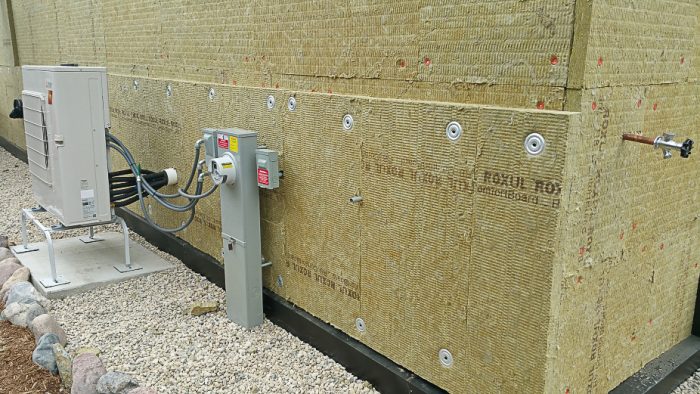Community, Leadership, Experimentation, Diversity, & Education
Pittsburgh Arts, Regional Theatre, New Work, Producing, Copyright, Labor Unions,
New Products, Coping Skills, J-O-Bs...
Theatre industry news, University & School of Drama Announcements, plus occasional course support for
Carnegie Mellon School of Drama Faculty, Staff, Students, and Alumni.
CMU School of Drama
Friday, April 09, 2021
An Overview of Common Insulation Materials
Fine Homebuilding: Choosing the most appropriate type of insulation should be part of an overall strategy of materials selection. The underlying purpose of green building is not to develop marketing brochures that will help sell “green” houses in suburban subdivisions, but to make decisions that genuinely benefit people and the planet. This makes a strong case for finding ways to use insulation and other materials with low carbon emissions.
Subscribe to:
Post Comments (Atom)

5 comments:
It was quite funny, the other day I heard the Home Depot little jingle and forgot that they had one (because it's like really a jingle it's like a little section of music, am I insane, do people know what I'm talking about?) https://www.youtube.com/watch?v=ycPDM8OVqLI Anyway I'll comment on the post now, sidetrack averted. "cellulose sequesters carbon" I love when articles use fancy words, they could have just said "hides" or "isolate" but NO they had to use the word sequesters :) Whenever I read about Fiber Glass or insulation I get itchy... But the Cotton Batts says that it isn't itchy (so I am skeptical that it will do the proper job because for some reason I feel like if it doesn't make you itchy it isn't doing the right job) I also realized that anyone who installs this stuff always had experience wearing masks constantly (PPE everyone, stay safe, and always wear your mask not just for installing insulation but because we are in a pandemic)
I’m sure this is probably useful information for me to learn if I am ever building or renovating a home, but will I ever need to know any of this information in the world of theatre? I guess maybe if I was in charge of sourcing materials for a set that was supposed to resemble a construction site. I’m assuming that no finished sets would go so far as to have insulation in the walls. Would this kind of knowledge be at all useful in controlling the heat of lighting and VMD fixtures? Could you use this kind of insulation to control acoustics if I become a sound designer? Just curious.
All that being said, I think it's actually pretty interesting that straw was included in this list. I never would have thought that hay bales would actually be listed as a construction material for homes. I am also surprised by the bricks of hemp they showed being stacked.
I initially clicked on this article because for a Susan project, I actually used insulation foam as a material for one. Reading this article was interesting to me as insulation in walls is something I never really have paid attention to or remember. It plays a pretty important role in homes as it is responsible for keeping indoor temperatures at a living condition regardless of the outside. I thought this article did an okay job of describing the different types of insulation for a non-educated audience ( in this case someone who knows nothing about wall insulation ). What really helped me was the bullet points at the end of each description giving the r-value, cost, net carbon emissions, toxicity, and installation. This was the perfect 'too long didn't read' and helpful for me who doesn't really understand the terms of installation. I'm glad that they included the net carbon emissions as that is something that has risen to great importance in the last few decades when it comes to human construction.
Although insulation is very important for home building and whatnot, I do not think it is that important for theatrical construction. We have no need insulate the buildings inside of the existing buildings that we make. I also thought that the information shared was pretty boring and that I would prefer not to build a house. I do hope that everyone building homes is being safe but installing insulation sound a bit unnecessarily dangerous for the theatre. We should take time to talk about some of the most dangerous things we do in the theatre like flying things in and out and probobly manipulating electricity. Those are the two most lethal things that we do. Hopefully we do not need to include something else that is semi dangerous. Insulation is cool for the house and for the office and for the school but it is definitely not the best use of material, time, and money for the stage.
I wouldn't be too quick to dismiss insulation material and its use in theatre! I agree with what others have said that the article does a really good job laying out enough information to make informed decisions about insulation without getting too bogged down with details. I also appreciate the inclusion of the environmental impact of these materials, since that is becoming more and more important. I would have, however, appreciated more of an index comparing the R value per lb of carbon produced (which takes me back to my green theatre presentation, woohoo). When it comes to actually using the stuff, I do think it useful for us to know exactly what type of insulation exists in the world, so that when a designer specifies a vague insulation detail we can have an informed discussion about it. Furthermore, while many won't encounter situations where we need thermal insulation in the theatre world, temperature control can be crucial for cryo and other smoke/fog effects.
Post a Comment